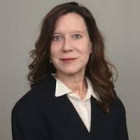Presentation Panel
Bright and Shiny Open Education - Or Not?
Date Friday, Nov 25 Time – Room Potsdam III
In this session we will discuss initiatives that are supporting the design, implementation and adoption of Open Education through Open Education Innovation Labs, Open Degrees and Open Educational Resources. Speakers will cover well-known benefits such as inclusion, cost savings and customisation, but also the lesser known such as learner engagement and fostering of critical thinking. At the end we will add some questionmarks about the challenges and limitations of Open Educationional Resources. Join to see the adherents and non-believers coming into action!

Lilia Cheniti Belcadhi
Associate Professor, Head of Digital Learning and Pedagogical Innovation Unit, Sousse University, Tunisia
Dr. Lilia Cheniti Belcadhi is an associate professor and Researcher of Computer Sciences at the Higher Institute of Computer Sciences and Communication Technologies, University of Sousse, Tunisia, and a graduate of the University of Braunschweig in Germany where she read for an engineer and master’s degree in Computer Sciences. She is a member of the PRINCE Research Lab at the University of Sousse and was associate researcher at the Computer Science department at Telecom Bretagne, Brest in France. Her PhD was realized in collaboration with the Semantic Web group at the Institute of Information Systems of the University of Hannover in Germany. She has also a diploma of « Habilitation à Diriger des Recherches » (HDR) in Computer Sciences.
Her research interests include Technology Enhanced Learning, Semantic Web, E-assessment and ELearning. She is associated as Technology Enhanced Learning Expert with many national and international organizations (VUT: Virtual University of Tunis, AUF (Agence Universitaire de la Francophonie), ILO( International Labor Organization).
She is involved, as part of her ongoing research, in several e-learning projects and has co-authored various online courses. She is coauthor of the first Computer Sciences MOOC (Massive Open Online Course) in Computer Sciences in Tunisia, hosted on FUN (France Université Numérique) for two sessions in 2015 and 2016.
She led the online learning department at her University and is currently coordinator of Pedagogical Innovation and Digital Learning Unit at her University. Her recent Technology Enhanced Learning Projects are : LET’SEGA (2017-2019): A Framework for Assessment of Competencies based on (2019-2020)Serious Games for Lebanon, Egypt and Tunisia; Learning Lab LETS MENA Network (2019-2021) (Lebanon, Egypt, Tunisia and Switzerland); Erasmus+ InSIDE project (2019-2022) (Including Student with Impairments in Distance Education) and Open2Sustain: Open Education for Sustainable Development ( France, Portugal, Morocco, Algeria, Egypt, Tunisia) (2021-2022) .
She is also member of several reviewers’ committees of national and international conferences, and journals related to Technology enhanced Learning and chair of Open Education Global Session in Arabic Language.
Researchgate: https://www.researchgate.net/profile/Lilia_Cheniti-Belcadhi
DBLP: https://dblp.org/pers/c/Cheniti=Belcadhi:Lilia.html
Links

Dietmar Kennepohl
Professor of Chemistry, Athabasca University, Canada
Dietmar Kennepohl B.Sc.(Hons), Ph.D., FCIC is Professor of Chemistry and former Associate Vice President Academic at Athabasca University—Canada’s Open University. Most of his teaching experience has been in a distributed and online setting and he holds both university and national teaching awards including being a Society for Teaching and Learning in Higher Education 3M National Teaching Fellow. Dietmar is a well-published and sought-after presenter at local, national and international conferences, on topics including learning design, learning outcomes, assessment, PLAR, transfer credit, distance and online education, and emerging educational technologies. In 2010 his book “Accessible Elements: Teaching Science Online and at a Distance” was winner of the 2011 Charles A. Wedemeyer Award. His current book “Teaching Science Online: Practical Guidance for Effective Instruction and Lab Work” (2016) is part of the distance education series by Stylus edited by Michael G. Moore.

Carolyn Stevenson
University Faculty, Purdue University Global, United States of America
Dr. Carolyn Stevenson is a full-time faculty member and faculty advisor in the School of General Education, Department of Professional Studies, and serves as course lead for PR/PR499. Carolyn has over 20 years teaching and administrative experience in higher education at both the undergraduate and graduate levels and has been with the University for 18 years. Her most recent publication is a text entitled Enhancing Higher Education Accessibility through Open Education and Prior Learning, published by IGI Global in 2021.
Links

Matt Porritt
Platform Manager, Moodle LMS
Forward-thinking, multidisciplinary leader with a strong technical acumen. A natural born problem solver with highly developed communication skills. Equally at home with both business and technical stakeholders.
A skilled Product Manager and Technical Leader in open source software development. Specialising in delivery to enterprise level organisations within higher education, government and the corporate sector.
Approachable, trustworthy, and charismatic leadership that excels in building high-performing teams and cultures that focus on inclusion, innovation, and technical skill sets. Combining expert product and market knowledge to deliver sales growth, product feature set enhancement and most importantly client success.
Moderator

Brian Mulligan
Owner / Consultant, Education Futures, Ireland
Brian Mulligan, a former Civil Engineer with a specialisation in computer simulation, transitioned into a successful 38-year career in higher education, working mainly with learning technologies. Widely regarded as Ireland's foremost authority in education technologies, Brian's impact has been significant. In 2002, he founded the Irish Learning Technology Association. Additionally, Brian spearheaded the establishment of Ireland's largest online distance learning operation. Today, he serves as an independent consultant, leveraging his expertise to strategically harness the power of learning technologies.
Links
Stretched Too Thin: Leveling the Educational Landscape Through Faculty Mentoring and Open Degree Plans, Carolyn Stevenson
This presentation will discuss how OERs and open degree programmes include ways to foster educational equity and ways in which faculty mentors can help to achieve student success in the online classroom.
Today’s learners need ways to create a human connection in the online classroom, as well as a flexible, customised approach to earning a college degree. Many adult learners have been away from the academic setting for several years and often need support from faculty mentors to assist in their educational journey.
Part of the respected Purdue University system, Purdue Global’s mission is to provide greater access to affordable, high-quality education. We provide access to free and low-cost open resources to support students during every step of their educational journey.
This unconventional approach to education removes traditional barriers to college credit by placing learners in an open environment, which encourages independent and critical thinking.
Faculty mentors support learners by not only ensuring academic success but also by being accessible to discuss career options and serving as a support system for discussing life issues often faced by first-generation, underserved populations.
The session will engage participants with an open discussion on the use of OERs, mentoring and gaining institutional buy-in for OERs.
Overview
- Benefit from a list of OER online takeaways.
- Gain tips for interesting mentoring, OER, and open degree plans at your institution.
- Practical application of experiential learning-based capstone courses.
Our Living Textbook: Incorporating Collaboratively Created Open Learning Materials in Chemistry, Dietmar Kennepohl
In this presentation, educators will receive a tangible example of the potential benefits of integrating OER including cost savings, access, and customisability. Participants will also gain a brief glimpse of potential learner engagement and contextualisation in using a living textbook.
The aspiration of “science for all,” with its goal of universal and open access to science has really benefited from online technologies. Of particular interest is the whole movement around open educational resources (OER), which has presented us with a new inclusive way of doing things that should realise savings and reduce barriers to learning.
We replaced the commercial textbook for our second-year university introductory organic chemistry courses with access to custom chemistry LibreTexts at UC Davis. LibreTexts is a non-profit organisation housing a multi-institutional collaborative venture funded by the National Science Foundation to develop the next generation of freely available texts to improve postsecondary education at all levels of higher learning.
It consists of 12 pseudo-independently operating and interconnected libraries that host content in chemistry, biology, geology, mathematics, statistics, physics, social sciences, engineering, medicine, agriculture, photo sciences, and humanities.
It is an open-access environment where both students and faculty write and rewrite content to result in a customisable no-fee, high-quality textbook, accessible anytime, anywhere, by anyone through the internet.
This presentation describes our experience in developing (and maintaining with learner contributions) a custom textbook and integrating it into our online courses, as well as reporting student performance and perspectives in engaging with these materials.
Athabasca University (AU) – Canada’s Open University has the mission to reduce barriers to university-level education and offers its curriculum entirely online and at a distance.
Overview
- Create a course by replacing the traditional commercial textbook with OER, which aligns strongly with the philosophy of universal open access in education and also provides substantive savings for the learner.
- Appreciate that learner participation in writing/editing their own textbook offers a vehicle for increased engagement. People learn when they do things.
- Recognise that the wiki approach to a course textbook permits us not only to do new things, it also contextualises the nature of knowledge for the learner.
The New Normal in Education: Open, Innovative and Intelligent Learning, Lilia Cheniti Belcadhi
In this presentation participants will acquire knowledge on the process of designing Open Learning Labs (incubation spaces for innovation in open education) and on the methodology to design Open Educational Innovative Resources.
The COVID-19 health crisis has forced teaching teams to use technologies to ensure continuing in learning for their students. To keep learning in disruption has become a challenge to the global education community and there is a huge need to design and deliver effective and innovative support services for online learning oriented to both teachers and students.
There are a number of critical challenges to be considered when developing and implementing e-learning environments such as encouraging blended and lifelong learning, valuing both informal and formal learning, addressing the open and social dimensions of learning, and recognising the different contexts in which learning takes place.
During the last years, knowledge and learning are distributed and happening in a world without boundaries. These forms of open, innovative and hybrid learning improve the attitudes of students and develops their thinking and involvement in the learning process.
In this context the LETS (Lebanon, Egypt, Tunisia and Switzerland) Learning Lab network has been deployed. Our mission is to set up a both a physical and digital space to allow discovery, experimentation and development of learning practices and innovative learning and teaching, particularly by using digital technologies.
Several joint activities between the different Learning Labs of the LETS Learning Lab network were initiated during the COVID-19 health crisis, all conceived in a design-oriented research approach. The activities were oriented towards overcoming the difficulties that universities of the LETS Learning Lab network encountered during the pandemic.
In particular, the innovative @email Initiative of the Learning Lab Network, aims at encouraging collaboration and sharing through the co-creation of open educational materials and the freedom to use, personalise, improve and redistribute them.
To this end, a WIKI environment for sharing free educational resources has been set up, allowing the university community in the MENA region to create and collaborate on free content in three languages, Arabic, French and English, and to share them as open educational resources under a Creative Commons license.
In this presentation, we first focus on the importance of innovative education and open hybrid learning environments, and describe the characteristics of such learning. We then present the methodology for designing and implementing innovative learning scenarios, in particular through learning labs frameworks.
Artificial Intelligence also plays an important role to enable a framework for Intelligent learning environments, as to adapt the learning processes to the learners’ needs and to optimise both learning and teaching.
Overview
- Importance of hybrid learning scenarios in “the New Normal”.
- Characteristics of open innovative learning resources.
- How to design and set up a learning lab.
- Artificial Intelligence as a framework for innovation in learning.
Education for the Future, Matt Porritt
This presentation will include a summary of how an open education ecosystem can transform the future of education and foster a model of lifelong learning that promotes social equity, sustainability and global solidarity.
Freedom in education technology is fundamental to allowing education to flourish and grow in a more equitable and accessible way and that is why Moodle LMS, is, and will always remain an open source platform. Over the last 20 years, Moodle’s open source philosophy has underpinned its exponential growth, and it is now one of the world’s most trusted and customisable learning management systems with over 300 million learners worldwide.
In this presentation, Sander Bangma outlines Moodle’s support of open education as crucial to reimagining and renewing education for our collective benefit. With detailed insights into the latest developments of the Moodle platforms including Moodle LMS, Moodle Workplace, Moodle Academy and MoodleNet, this presentation will provide both philosophical and practical insights into how Moodle supports its mission to “empower educators to improve our world”.
Overview
- Why Open Education is key to a sustainable and equitable Global Education Ecosystem.
- How Moodle supports the open education movement.
- Benefits of open source technology for education.
- How the Moodle platforms support best practice online learning experiences.
How I Fell Out of Love with OER!, Brian Mulligan
This presentation will cover how Brian Mulligan has found issues with OER such as attribution, intellectual property rights, quality assurance etc. to be problematic in his work in online learning over the last 25 years and has come to the conclusion that the issue of learning resources and associated costs is a minor one and not the main issue we should be addressing.
I used to love OER but now I wonder if the movement has become more like a religion.Although there are only a few fundamentalists, the bulk of the adherents seem deeply connected to a set of idealistic principles that guide their work and discussions. Having once subscribed to the ideals and accepted the principles, I now believe that they are not as useful as I once thought they were. Some may even be not true. These principles cover many aspects of OER; attribution, reusability, quality assurance, intellectual property rights, distribution, granularity, technical standards and even the encouragement of their use.
OER does not address the biggest costs in higher education, namely; tuition, accommodation, living and opportunity costs. To address these we need more radical solutions such as work-based degrees, micro-credentials, degrees at scale and competency based education. So although I still retain a fondness and respect for the OER movement and hope that this will eventually help to improve access to reduce the cost of education for large numbers of people, my affections now lie elsewhere.
Overview
- Challenges and limitations of OER.
- Awareness of the real costs of higher education.
- More promising innovations in higher education addressing costs.